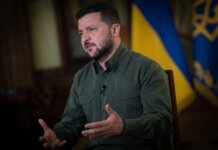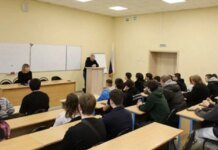The Kremlin has created a network of agents for hybrid warfare against Europe, involving marginalized individuals, often Russian-speaking men with criminal records. This was revealed by GLOBSEC and ICCT experts in a joint report presented to the European Parliament.

To wage a hybrid war against Europe, the Kremlin has created a network of agents in which state bodies and organized crime are closely intertwined, attracting socially marginalized individuals – often Russian-speaking men with criminal records – to commit sabotage on European territory. These conclusions were reached by experts from the non-governmental analytical organization GLOBSEC and the International Centre for Counter-Terrorism (ICCT) in a joint report "Russia's Criminal-Terrorist Network: Crime as a Tool of Hybrid Warfare in Europe."
UNN writes with reference to DW.
Details
The results of this study were presented at a meeting of the European Parliament's special committee "European Shield of Democracy," which took place on Wednesday, November 5, in Brussels.
Having studied the methods of the Kremlin's actions against the backdrop of Russia's full-scale war against Ukraine, the researchers demonstrated that "hybrid operations are not a secondary theater of military operations, but a central element of Russian strategy." They compared this tactic of the Russian authorities with the actions of the terrorist organization "Islamic State" (IS), which at one time recruited criminals into its ranks in Europe.
However, this time, recruitment and operations are not carried out by a terrorist organization, but by a state actor
– the report states.
Belarus uses migrants to pressure Europe – CPD03.11.25, 12:42 • 2951 view
Portrait of a saboteur: a Russian-speaking man with a criminal past
During the work on the report, it was established that from January 2022 to July 2025, 110 attempts of sabotage and attacks were made on the territory of Europe, mainly in Poland and France, in which a connection with the aggressor state can be traced. 89 of them were successful, and 21 were prevented.
At the same time, the authors of the report emphasize that "the number of prevented sabotages is probably significantly higher, as intelligence services do not always disclose such information."
The organizers of the study also managed to identify 131 people involved in these incidents, of whom at least 35 had a criminal past and were recruited in prisons or through organized criminal groups.
It is noted that if one tries to create a portrait of a person recruited by the Kremlin to carry out sabotage in Europe, it would be a man around 30 years old, usually from a post-Soviet state, Russian-speaking, and in difficult life circumstances, the report says.
The recruitment of such people was often carried out online, mainly through Telegram, as well as through relatives and friends. The main incentive in the process of recruiting saboteurs is money. It should be borne in mind that this can be a few euros for distributing pro-Russian leaflets, and quite significant amounts for attempts to attack critical infrastructure facilities, the report says.
Russia committed 20 violations of European airspace in October – CPD01.11.25, 08:49 • 11295 views
How to counter Russian sabotage in Europe
The authors of the report tried to give a number of recommendations regarding possible EU responses. Among them is improving the monitoring of online platforms, in particular Telegram.
Another step is to expand the interpretation of the concept of "hybrid threats," as the national doctrines and strategies of many countries do not take into account the role of "non-state actors, such as criminal organizations, ideologically motivated proxies, or individuals driven by profit."
It is these "legal loopholes" that give Russia grounds to deny its guilt or involvement in attacks and sabotages. It is also noted that close cooperation between state and private actors is important in countering the threat.
They must be partners, because private companies in Europe have more advanced mechanisms at their disposal that help identify criminal activity of the Russian Federation. Therefore, we advocate for the creation of a platform for coordinating cooperation to prevent Russian hybrid attacks on European countries
– summarized Dominika Hajdu, Director of Policy and Programs at GLOBSEC.
Addition
Ukraine stands in solidarity with Lithuania in the face of Belarusian provocations and airspace incursions that have disrupted civil aviation.

































